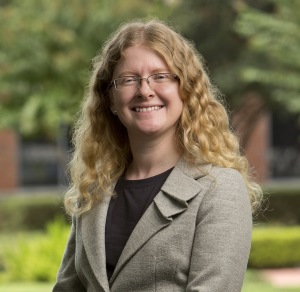I am honoured to welcome Dr. Holly Ordway to my blog today.
In which Imaginative Literature Stirs the Heart to Conversion
How could a fierce atheist enter into Christian faith? There are many ways for God’s grace to work; my own story is one that highlights the importance of imaginative literature!
When I was firmly an atheist, I dismissed Christianity as superstitious nonsense, and I simply would not have listened to the arguments that ultimately convinced me that the Christian claim is objectively true. Apologetics arguments were (eventually) vitally important, but as I reflected and wrote about my journey, I recognized the importance of imagination as both the catalyst and the foundation of my rational exploration of the faith.
How did that happen?
Let me give you a little glimpse from my memoir of conversion, Not God’s Type: An Atheist Academic Lays Down Her Arms.
From my childhood:
Long before I gave any thought about whether Christianity was true, and long before I considered questions of faith and practice, my imagination was being fed Christianly. I delighted in the stories of King Arthur’s knights and the quest for the Holy Grail, without knowing that the Grail was the cup from the Last Supper. I had no idea that the Chronicles of Narnia had anything to do with Jesus, but images from the stories stuck with me, as bright and vivid in my memory as if I had caught sight of a real landscape, had a real encounter, with more significance than I could quite grasp.
And at some point in my childhood, I found J.R.R. Tolkien’s The Hobbit and The Lord of the Rings, and that changed everything. Not suddenly. Not even immediately. But slowly, surely. Like light from an invisible lamp, God’s grace was beginning to shine out from Tolkien’s works, illuminating my Godless imagination with a Christian vision.
I don’t remember reading The Lord of the Rings and The Hobbit for the first time, only re-reading them again and again… Middle Earth was a world in which there is darkness, but also real light, a light that shines in the darkness and is not extinguished: Galadriel’s light, and the light of the star that Sam sees break through the clouds in Mordor, and the ray of sun that falls on the flower-crowned head of the king’s broken statue at the crossroads… I didn’t know, then, that my imagination had been, as it were, baptized in Middle Earth. But something took root in my reading of Tolkien that would flower many years later.
From my time at college:
The bumper-sticker expressions of Christian affirmation – “I’m not perfect, just forgiven!” “God is my co-pilot!” – and the kitsch art that I saw – a blue-eyed Jesus in drapey robes (polyester?) comforting some repentant hipster, or cuddling impossibly adorable children (none crying or distracted), presented faith as a kind of pious flag-waving. No thanks!
I didn’t know then how to say it, but I was looking for the cosmic Christ, the one by whom all things were made, the risen and glorified Jesus at the right hand of the Father.
The Catholic poet Gerard Manley Hopkins got past my allergic reaction to kitsch because it flowed naturally out of what he saw in the world.
Where his poetry was sweet, it had the sweetness of a perfectly ripe strawberry, or of the very best chocolate, creamy and rich – not the chemical sweetness of a low-fat sugar-free pudding with non-dairy whipped topping.
Where his poetry was bitter, it was bitter with the taste of real misery, the kind that fills up your awareness, squeezes out the memory of better times and draws a blank on tomorrow and tomorrow and tomorrow – not the faux-sadness of “Jesus died for you!” (so cheer up and get with the program already), the faux-compassion that can’t bear to look at a crucifix (so morbid).
Somehow for Hopkins the sweet and the bitter were not opposed; they were part of the same experience of being in the world, and undergirding all of it was something I didn’t understand at all, never having experienced it or known anyone who had: the reality of God, not as an abstract moral figure or as a name dropped to show off one’s piety, but a dynamic awareness of being in relationship with the Trinitarian God, an experienced reality bigger by far than the words used to point to it.
Years later, struggling with questions of meaning, wrestling with despair, I re-read Hopkins. I had no conscious desire to find God; I thought I knew that He did not exist. And yet something was at work in me, just as Hopkins wrote in “The Windhover”: “My heart in hiding / Stirred for a bird. . .” My heart stirred – for what? For something beyond my experience.
Poetry had done its work. I was ready to listen.

Holly Ordway is Professor of English and Director of the MA in Cultural Apologetics at Houston Baptist University, and the author of Not God’s Type: An Atheist Academic Lays Down Her Arms (Ignatius Press, 2014). She holds a PhD in English literature from the University of Massachusetts Amherst; her academic work focuses on imagination in apologetics, with special attention to the writings of C.S. Lewis, J.R.R. Tolkien, and Charles Williams.









